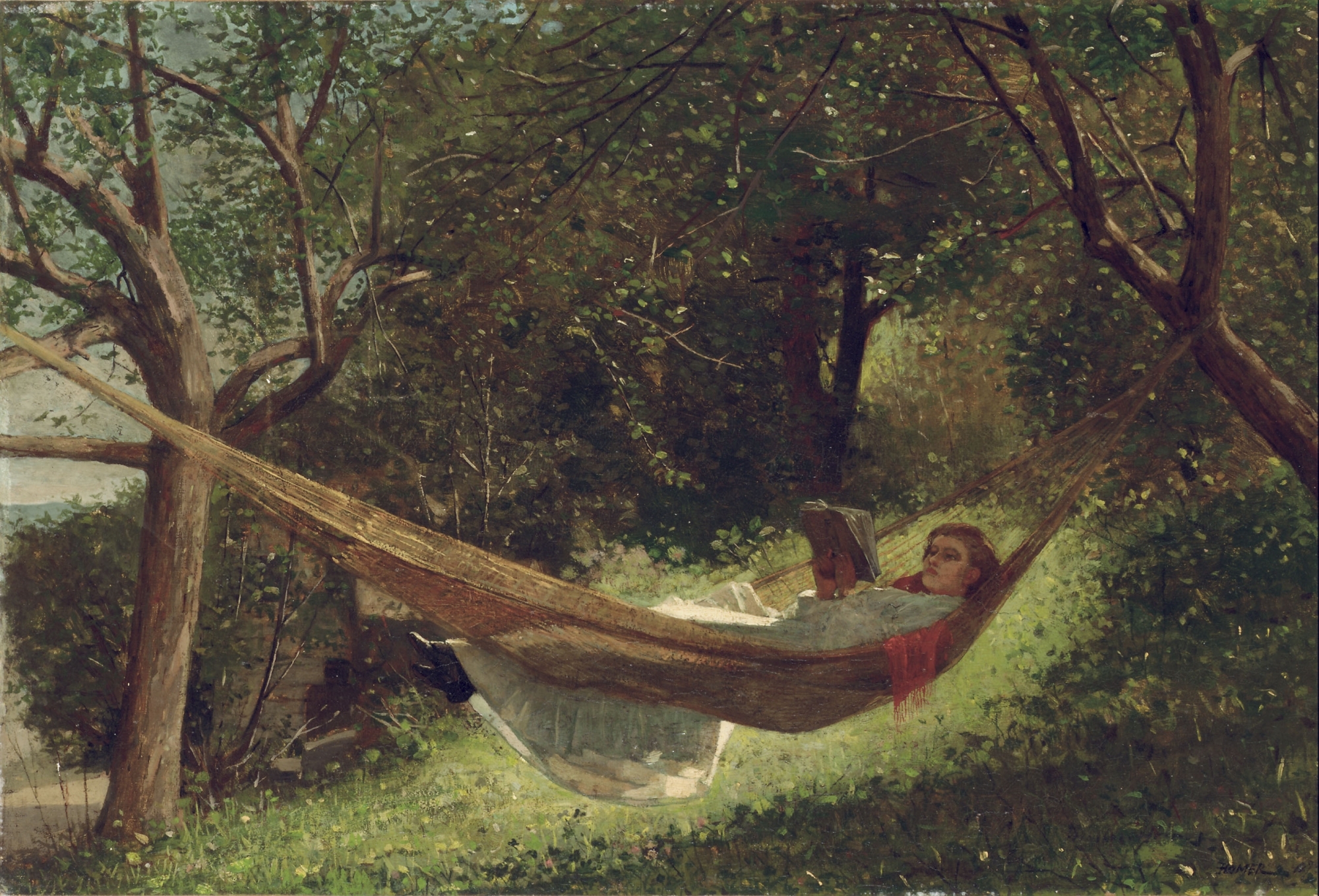
Girl in the Hammock, Winslow Homer, 1873 / Wikipedia
The intellectual life is available to all because it only requires a willingness and an ability to get deeply and profoundly lost in thought. So argues Zena Hitz, a writer, tutor at St. John’s College, and founder of the nonprofit Catherine Project, which aims to bring the study and discussion of great literature to those of all backgrounds. Hitz authored Lost in Thought: The Hidden Pleasures of an Intellectual Life, which examines the pleasure and fulfillment that come from pursuing intellectual pursuits born out of one’s own self-directed curiosity. In this interview with Renovatio’s digital editor, Faatimah Knight, she discusses the ways the intellectual life manifests in academia, in service to others, and in the habits of students and religious devotees. The conversation is edited for clarity and length.
Faatimah Knight: I really enjoyed your book Lost in Thought. From the first Bible verse I was invested: “For wisdom is better than rubies; and all that you may desire cannot compare with her,” Proverbs 8:11. Define what you mean by “an intellectual life”: Is it simply our private thoughts sparked by our observations of the world, by reading, by conversing with others? What are the ingredients that make up an intellectual life—and why is it important to have such a life?
Zena Hitz: As you already suggested in your question, I think about intellectual life as an aspect of any life. There is such a thing as an intellectual vocation—that is, a special call to think more intensely or to teach or to study. The type of intellectual life I’m interested in is an aspect of any ordinary life.
It’s recognizable in forms that most people can see—reading, thinking, conversation, reflection, interest in the natural world, mathematical thinking. What all those human activities have in common is the exercise of the mind on reality, on what is. That sounds very general, which is why I like to use examples that people can connect to real life. Pursuing the intellectual life is not necessarily directed toward a particular goal, like building a house or fixing a car or developing one’s career so one’s life is financially sustainable, but is something we do just because it’s one way to grow as human beings. It’s the way we develop, the way we change and are being changed by what we encounter. This type of intellectual life is a way of being more human, of growing in our humanity. That’s at least a start for the conversation.
FK: The idea of becoming more of yourself, more human, is fascinating in the context of the religious characters in your book. One criticism that religion gets is that it makes people less human, that it disconnects people from their humanity. When we dig into the stories of Mary and Abraham, there’s this sense of these individuals living really big lives and tapping into all aspects of their humanity. Not the base aspects, which maybe is the modern criticism, but some of the more powerful aspects of what it means to be a human being.
ZH: I think that’s right—it’s one of the things that’s distorted contemporary perceptions of religion and it’s partly the fault of some of our religious culture, but some of it maybe not. Religion is essentially ascetical. You restrict some of your activities for the sake of others. Everyone understands that playing sports has to be ascetical—you have to make sacrifices, make choices, give up something for the sake of becoming better at something else. People understand the importance of discipline and direction in sports, but they don’t see it the same way in moral or intellectual life.
As far as I’m concerned, the restrictions on a life of faith, the ways in which you can’t do everything that you might be inclined to do, are a prerequisite for entry into the realm of much greater freedom and flourishing. We could all do better at communicating that aspect of a life of faith: You close yourself off like an athlete or an artist or anyone who cares about anything deeply. You close yourself off for the sake of some greater growth or development or freedom or connection.
To the extent that my book has a religious aspect, it’s to look at what asceticism makes possible rather than at what good people don’t do. It’s to hold out the attractive pieces of religion rather than the restrictive part.